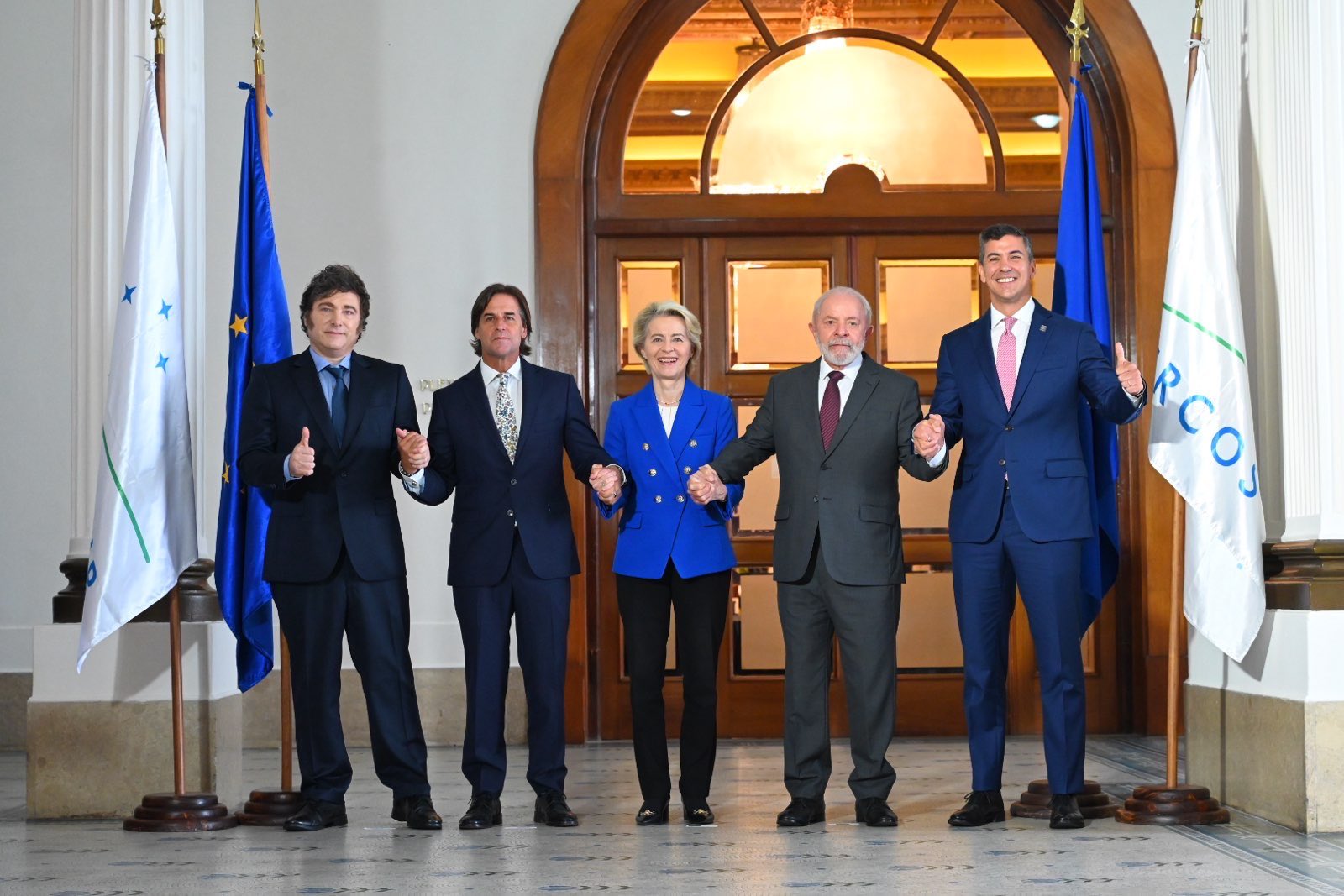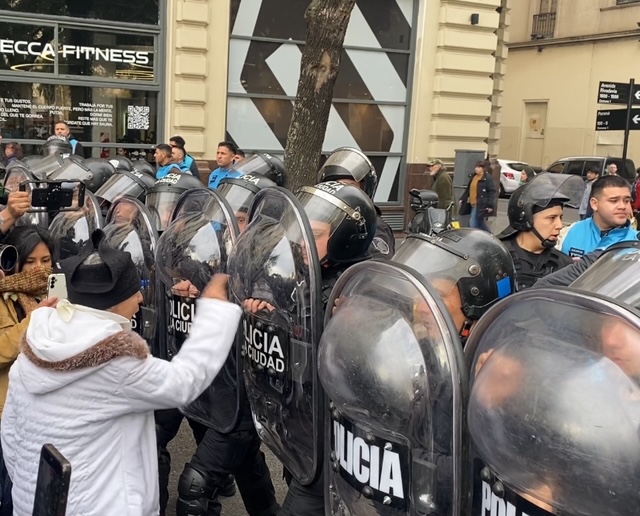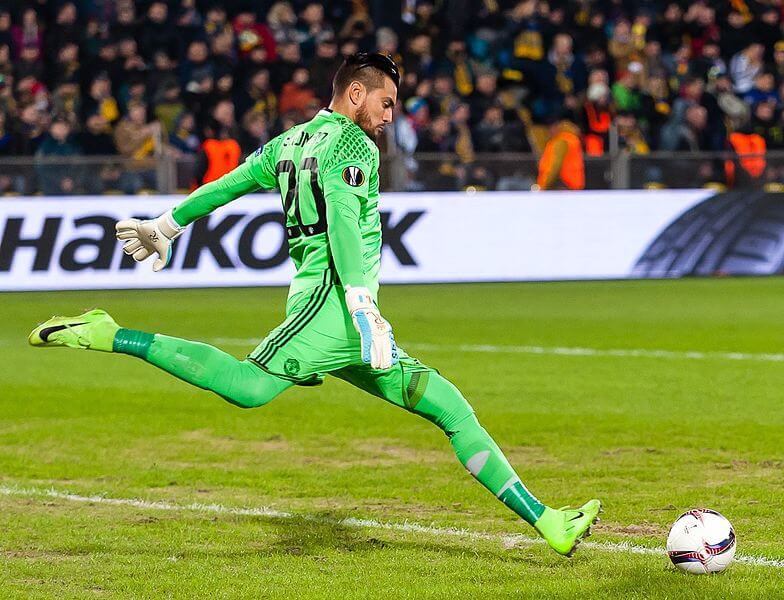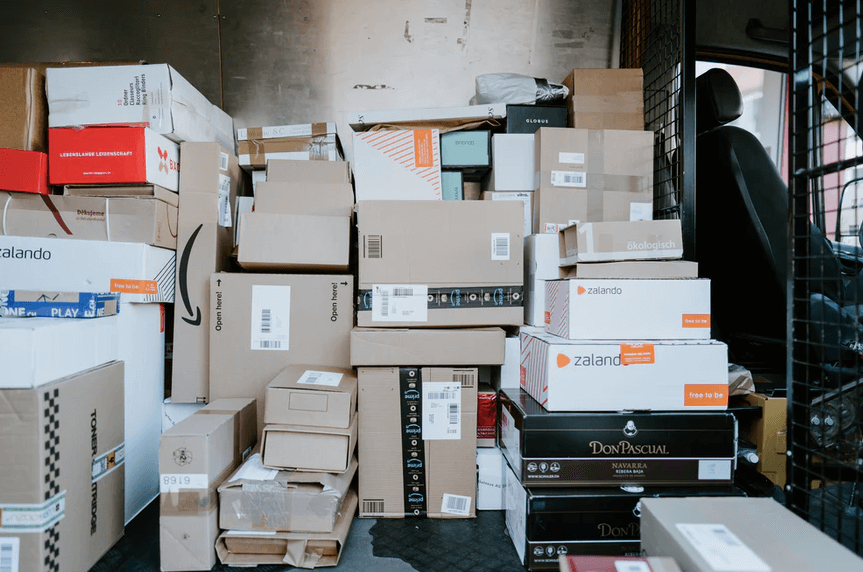Buenos Aires, Argentina — The European Union (EU) and Mercosur reached a historic trade agreement on December 6, signed during a meeting of the South American bloc in Montevideo, Uruguay.
The agreement has been 25 years in the making and appeared to be ready for approval in 2019, but pushback, mostly from France, delayed its approval. Policymakers promise “this time it’s different,” but the future of the agreement is yet unclear.
The deal between the EU and the five members of Mercosur —Argentina, Brazil, Paraguay, Uruguay, and newly incorporated Bolivia— aims to create a free-trade area spanning the two regions, with a combined population of 700 million.
“This is a win-win agreement,” announced EU Commission chief Ursula Von der Leyen after finalizing negotiations on the accord at the Mercosur summit in Montevideo. The Brussels official called the agreement “a truly historic milestone” that would build trade bridges at a time when “strong winds are blowing in the opposite direction, towards isolation and fragmentation.”
The EU-Mercosur deal, however, still needs to be approved by at least 15 of the European Union’s 27 member nations, representing a minimum of 65 percent of the EU population.
The agreement was also celebrated by the prime ministers of Spain, Portugal and Germany. “Our economies together represent a collective GDP of 22 trillion dollars. The agreement we finalized today is very different to the one announced in 2019,” claimed Brazil’s President Luíz Inácio Lula da Silva.
Lula said Brazil will propose “a cooperation program for low-carbon agriculture and the promotion of sustainable farming exports,” to be called “Green Mercosur.” Calling it a “historic opportunity” to lead the energy transition, the Brazilian president advocated for the principle of “common but differentiated responsibilities” to promote “climatic justice.” Those claims were aimed to address climate concerns that had hindered the agreement five years ago.
In Argentina, the agreement was celebrated as a milestone during its initial announcement in 2019 under then-President Mauricio Macri. However, it was shelved by Alberto Fernández after opposition from France stalled progress. Friday’s signing comes as current President Javier Milei advocates for Mercosur to pursue individual trade agreements with countries outside the bloc, signalling towards Donald Trump’s United States.
During his speech Friday, Milei said Mercosur was established “to integrate the markets of our countries, eliminating fees, bureaucracy and double taxation.” However, he recalled, the bloc later created a common external tariff that “made import prices higher, added costs to our industries — thus making them less competitive — and closed off a number of markets for us.”
Praising free trade, Milei described Mercosur as a “prison” and called for “a new formula” for bloc trade, emphasizing greater “autonomy” while maintaining “the agreements that make us brothers.”
The deal will face obstacles, as it is opposed by farming sectors in European countries, primarily France, which are concerned about cheap agricultural exports from South America. French President Emmanuel Macron, whose government collapsed this week, called the deal “unacceptable” in its current form.










